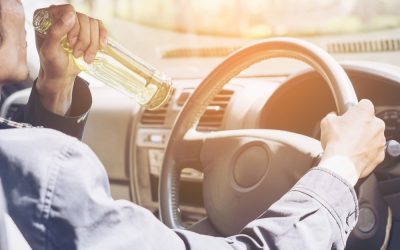If your DUI began with a traffic stop or at a DUI roadblock, it’s likely that officers asked you to take one or more field sobriety tests. Most drivers don’t realize that there is no way to definitively pass these tests. It is easy to fail a field sobriety tests (FST), but if you perform well on it you will not necessarily be considered sober.
FSTs are optional, and you should politely decline to do them.
How do DUI field sobriety tests work?
Field sobriety tests are designed to help officers check your behavior and appearance for signs of intoxication. The tests focus on three things:
- How well you can follow instructions
- Your physical agility
- Whether you exhibit any involuntary responses that are normally associated with intoxication
This is why FSTs are so easy to fail. If the officer asks you to “walk the line,” for example, you might do as you are told, but fail because you had to hear the instructions twice. Or, you might balance perfectly but fail because you moved your arms away from your sides to keep your balance.
Additionally, most FSTs will require that you concentrate on two things at once—such as balancing while also counting the number of steps you take. The theory behind FSTs is that intoxicated people are not only less physically coordinated, but also less able to focus. Therefore, they will have a hard time understanding instructions or focusing on multiple things.
What are the most common field sobriety tests?
The most common tests are;
- Walk and turn test. Also known as “walking the line,” this test involves balancing along a straight line, walking in a special toe-to-heel manner, counting your steps as you go, turning around in a specific way and coming back.
- One-leg stand test. In this test you stand on one leg, look at your foot, keep your arms at your side and count off 30 seconds in a specific manner. You are supposed to hold your balance the entire time.
- The horizontal gaze nystagmus test. This test is different than the others because it looks for an involuntary response. “HGN” or horizontal gaze nystagmus refers to twitching of the eye. In a sober person, your eye will twitch only if you look to the far left or far right of your vision, and the twitching is hard to notice. In an intoxicated person it twitches more, and it will do it even if you look just a little bit to the side. Officers ask you to follow an object with your eyes and check for HGN and other signs.
Am I required to perform FSTs?
No. The officer can request that you take them, but you can say no. The best thing to do is politely say you prefer not to take any tests. Do not be intimidated if the officer tries to pressure you, and remember that the law does not require that you take them.
If police are asking you to take FSTs, it’s likely you’re going to be arrested no matter what. There is no reason to give them additional evidence against you.
If I failed a field sobriety test, what does that mean for my DUI?
It will be used as evidence against you. But this does not necessarily mean you’ll lose your case. For example:
- FSTs are not 100% accurate, and a sober person can fail them.
- FSTs are among the weakest evidence the prosecution can use, because they do not prove the presence of drugs or alcohol in your system.
- A good lawyer may be able to challenge the FST evidence and get it suppressed in your case.
How do I fight FST evidence?
You need to speak to a DUI lawyer. There are many ways for your lawyer to attack the validity of the FSTs. These include:
- Officers did not have probable cause to stop you in the first place
- Officers did not give clear instructions on the test
- You were not given a dry, clear, level area of ground on which to perform the test
- Your weight, age, or medical condition affected your ability to do the test
- There was another reason, such as stress or anxiety, that caused you to misunderstand directions or fail the test
Your lawyer does not necessarily need to get the FST thrown out of the case altogether. Simply casting doubt on the validity of the test weakens it as evidence against you.
Have you been charged with DUI? We can connect you with an experienced Los Angeles DUI lawyer and get you a FREE consultation. Fill out the form to the right or call (310) 896-2724 and get your free consultation today.






